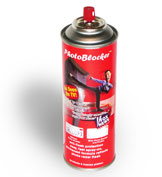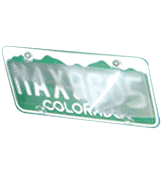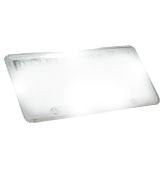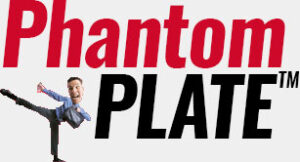Stopping Red-Light Cameras With Spray
BALTIMORE — Red-light cameras may have met their match. The 11 News I-Team has discovered a controversial product that’s supposed to shield your license plate from the camera’s eye and people are buying it.
WBAL-TV 11 News I-Team reporter David Collins asks does it work? Is it legal? And will it put your safety at risk?
Collins said the red-light cameras loom over busy intersections — poised like ray guns to zap the tags of drivers who run red lights.
Taking cash in a flash and screaming, “Gotcha!”, Baltimore City has 47 red-light cameras — more than any other city in the entire country — taking in more than $23.3 million since 1999 and forcing some people to find inventive ways to beat the system.
This is one of them: a clear spray designed to blind the cameras. Photo Blocker is supposed to make license plates so reflective, the tag becomes unreadable.
The man behind a red-light camera sign — known as Mike — doesn’t want to know who he is. But he says he’s one satisfied customer.
Collins asked, “How do you know it works?” Mike responded, “I’ve seen the red-light cameras go off right behind me, and I’ve never received anything so I guess no news is good news.”
The I-Team contacted every jurisdiction in the state which uses red-light cameras — hoping to one would put Photo Blocker to the test. But all declined.
ACS, the company that operates most of the cameras, also refused to test it with our cameras rolling. A representative said, “We tested it ourselves (and) it doesn’t work. Take our word for it.”
The Denver, Colo., department wasn’t afraid to test Photo Blocker. They used it against one of their speed cameras. Based on the photo finish, the product works.
State lawmakers outlawed plate covers but the statute doesn’t specifically address sprays.
Collins asked Baltimore County spokesman Sean Vinson, “Is it legal or illegal?” “We are not sure,” he said. “We have not had an interpretation of the statute from the courts.”
But even if it were outlawed in Maryland, it would be nearly impossible to detect. The company that makes and markets photo blocker says it doesn’t encourage any one to run lights.
“It’s for people who accidentally get caught or accidentally speeding,” said Ron Gamm from phantomplate.com. “They don’t necessarily do it.”
At $30 a can, the makers of Photo Blocker are cashing in. Since red-light cameras have become a control fixture, the business of battling Big Brother has grown.
A spokesperson for ACS, the company that operates Baltimore’s red light cameras, said accidents have dropped 63 percent and injuries are down 88 percent since the red light camera program began.
ACS refused to test Photo Blocker with WBAL-TV 11’s cameras rolling, but a spokesperson said “We tested it ourselves, it doesn’t work, take our word for it.”











